BLUE NOTES
Hello! Welcome to the restart of the Blues 2024-2025 season. The gang has a new coach, Jim Montgomery. Their do-over season began Monday night in New York with a frisky 5-2 win over the Rangers in Montgomery’s first game as the new coach – a debut that was delayed but inevitable.
Montgomery is the only coach that Blues GM Doug Armstrong wanted to hire, except that Monty’s job in Boston presented a minor inconvenience. Someone – Drew Bannister – had to be a placeholder in the spot until Montgomery was liberated to sign a five-year contract with the Blues. Armstrong honored his professional obligation by being utterly ruthless in this situation, and he had the backing of Blues ownership.
Me being the crass dude, I feel compelled to say something St. Louis media folks postured to do some virtue signaling by gently weeping for poor Bannister. Oh dear. Please dry your eyes. This is the NHL, mang.
And in the NHL, coaches are on the hot seat, the so-called firing line, the day after they get hired by a team that loves them for a little while before pushing them out and into the freezing cold to be run over by a Zamboni.
I didn’t create this madness … a system of berserk NHL owners and general managers and their bloody history of terminating coaches with abrupt and merciless alacrity.
“It’s become like the English Premier League in soccer,” former Blues coach Ken Hitchock told The Athletic. “It’s so darn competitive. There’s the feeling that the voice has to change, the system has to change, the method has to change. There’s got to be something fresh that happens. Because you’re trying so hard to turn it around, it gets to be like a headache that won’t go away.”
When a smiling gentleman in a nice suit is presented as the new head coach of an NHL club at a celebratory news conference … Well, we can start counting the days until the fella is led to the hydraulic platform crusher out in the junkyard where used cars are turned into pancakes. See ya.
More veteran wisdom from Hitchcock: “One of the things that happens is that momentum downhill as a coach is really hard to stop. Once the ball starts rolling down the hill, it’s hard to put the brakes to it. You need something big happening to turn it around … if you don’t, then that ball just keeps getting bigger and bigger and bigger. As a coach, you can almost feel it.”
Drew Bannister felt this. His boring team couldn’t score, couldn’t find a pulse and was withdrawing from competition. He is a good man, and a smart man, but as a coach (for now) he had all of the color and personality of a Christmas tree ornament that you put on the BACK of the tree to fill an empty space. I am sorry for being mean … but I am trying to be honest here. Or perhaps my grumpiness is left over from my lack of enthusiasm for watching Blues games – well, not unless I wanted to put myself in a bad mood and slump into misery.
And now? I can’t wait to watch the Blues. As soon as Montgomery cleared out his belongings in Boston, Bannister was already gone. When Montgomery lost his final game as Boston’s coach – 5-1 at Columbus – Bannister may have felt a strange chill rushing through his veins. In this league, unlike the Blue Oyster Cult classic, coaches fear the reaper.
Bannister was out of work before his job was even open. And the wrong-place, wrong-time Bannister may have been missing, in spirit, before he even coached his first game of the Blues’ regular season. Nothing would stop Armstrong from getting the ONLY coach he really, really wanted to succeed Craig Berube.
THE MONTY EFFECT: Montgomery made an instant impact as the Blues’ new head coach, cranking up the boys for a delightful 5-2 triumph over the Rangers at Madison Square Garden. The moribund St. Louis offense reanimated for three goals at 5-on-5 play after doing that only once in the nine previous games. And while skating 5-on-5, the Blues had their second-largest number of scoring chances (32) in a game this season – and the highest amount of scoring chances in a contest since Oct. 10. Their 31 shots on goal at 5-on-5 was also the second highest total of the season and most since Oct. 10. The Blues had energy and an aggressive mindset. They came to win. They played the game with joy and renewed purpose and entertained the fans back home.
THE MONTY ADVANTAGE: Montgomery doesn’t need much of a learning curve because he already knows this team quite well. Fifteen Blues on the current roster were part of the 2021-2022 squad, and that was Monty’s second and final season as an essential assistant coach to Craig Berube. Montgomery’s work and stabilizing personality was so respected in St. Louis after his personal troubles in Dallas, the Bruins hired him as head coach before the 2022-2023 season.
The list of 15 players that wore The Note for at least some of the time during Monty’s time as an assistant has Buchnevich, Robert Thomas, Jordan Kyrou, captain Brayden Schenn, Brandon Saad, Colton Parayko, Justin Faulk, Scott Perunovich, Nick Leddy (currently injured) Jake Neighbours, Oskar Sundqvist, Alex Toropchenko, Nathan Walker, Jordan Binnington and Joel Hofer.
Montgomery has a head start in taking over the Blues, and should be able to make quick fixes, smooth the flaws, correct some bad habits, and make smarter use of his personnel. That’s important for a team that moved to within three points of a wild-card playoff spot by dunking the Rangers.
“There was naturally a lot of smiles between us because of what we’ve been through before,” Montgomery told reporters on Monday morning in New York. “We’ve been through a lot of wars together already.”
When Schenn presented Montgomery with a puck to commemorate Montgomery’s first win as Blues head coach, the captain made sure to tell Monty how much the players respected him. And Schenn meant it.
YEAH, COACHING MATTERS: Montgomery had the Blues moving forward and attacking. This was a refreshing and uplifting change from what we were forced to watch in the final few weeks of the Drew Bannister Era. In those days, a big night for the Blues was scoring two goals … two goals by the entire team.
Remember what forward Pavel Buchnevich said about the Blues’ hopelessly feckless offense after Saturday’s 3-1 deep-slumber loss to the NY Islanders? A reporter asked Bunchevich what the coach was doing to spark the offense.
The answer wasn’t a jab; it was a stab.
“I don’t know, he doesn’t work on that,” Buchnevich said. “We’re working on defensive-zone. We’ve got to start working on offense, believing we can score. It’s hard to win in this league like 2-1, 1-0. I think we play defensively much better than last year, but it doesn’t create any chances offensively. It’s our biggest issue right now. Probably lowest team in goals. (Close: 30th.)
“We score two goals a game,” Booch continued. “We can’t win games like that. Our goalies have to stop 50 shots every game is impossible. Our team has good players and we’re (not) scoring. We’ve got to figure out offense. Offense is our biggest issues. Impossible to win with one and two goals. Just impossible.”
YEAH, COACHING MATTERS PART TWO: One of the oddest occurrences during Bannister’s 22 games this season was how he benched the richly talented youngster, Zach Bolduc. It made absolutely no sense, given Bolduc’s natural scoring touch and the team’s goal starvation. (I’m thinking this had to drive GM Doug Armstrong bananas). Bolduc played in only 16 of the 22 games coached by Bannister to start the campaign and did not score a goal in 183 minutes of ice time. On Monday in New York, Montgomery set the kid free, plugged in his talent, and Bolduc scored two goals in just under 16 minutes of action. Without the coaching change, Bolduc may have played in his next game in 2026.
MONTGOMERY IN BOSTON: I’ve gotten some emails from Bruins fans, telling me I’m way off base for referring to Montgomery as a good hockey coach. They tried to educate me on Montgomery’s many weaknesses (supposedly) as Boston’s hockey director. That’s interesting. Let’s do some fact-checking to determine the truth of those statements.
1. With Montgomery as coach for two-plus seasons, the Bruins led the NHL in wins, points, points percentage (.715), fewest goals allowed, and were fifth in 5-on-5 goals scored per 60 minutes. No other NHL team had a points percentage higher than .689 during Montgomery’s time with the Bruins.
2. Among NHL head coaches that have at least 200 regular-season games behind the bench, Montgomery’s .661 points percentage is the fourth best in NHL history. Montgomery has 299 regular-season games on his NHL head-coaching ledger. And among NHL coaches who have led teams for at least 299 games, Montgomery’s .661 points percentage ranks third-best in league history. Heck, Scotty Bowman’s career points percentage was .657.
And I’m supposed to believe that Montgomery is a lousy coach? The coach who led your regiment to the most dominant NHL record when employed by the Bruins? OK, pallys. Have another Sam Adams or two or 26 …and please enjoy a peaceful, blessed Thanksgiving.
POSTSEASON PERSPECTIVE: The only real strike against Montgomery was his 9-11 record in two postseasons as the Bruins leader. No, that isn’t good enough, but a little perspective is helpful. I’ll use Claude Julien as an example. The current Blues assistant is the last Bruins coach to win a Stanley Cup, accomplishing that special feat in 2011. But before making that successful Stanley Cup run, Julien’s career postseason record was 21-23. Including his time as the Dallas coach, Montgomery was 16-17. I don’t see much difference in comparing the two early–stage postseason coaching results of Julien and Montgomery. They have something else in common: Don Sweeney fired both of ‘em.
Let’s look at Joel Quenneville and Hitchcock in St. Louis. For all of their excellence here, the two coaches guided the Blues to just one conference final.
In his first four postseasons as Blues coach, Quenneville went 17-19 and then advanced to the 2001 Western Conference final in his fifth year. Hitchcock went 10-17 in his first four postseasons as Blues coach, then got the team to the Western Conference final in 2016.
Hitch is already in the Hockey Hall of Fame, and Quenneville will be inducted some day. Hitch won a Stanley Cup in Dallas, and “Q” won three Stanley Cups in Chicago.
I can understand the bitterness that follows a couple of early exits by the hockey team in Boston. But postseason hockey is brutally tough and difficult to survive. It’s a little more challenging than finding funny cat videos on TikTok.
Including his stay in Dallas, Montgomery has a disappointing .485 postseason winning percentage. But we’re talking about only 33 games. But that .485 postseason win percentage is higher than that of contemporary head coaches such as Berube and Bruce Boudreau. And that .485 is better than that on a long list of Hall of Fame coaches including Punch Imlach, Bob Gainey, Roger Neilson, Sid Abel, Lynn Patrick, Bob Pulford and Emile Francis.
Berube won the Stanley Cup in 2019 after taking over for Mike Yeo during the season. But that’s akin to one of those comets that comes around every 50 years or so. It’s highly unusual. Coaches pay dues, and try to keep taking swings in between firings to get rolling in a postseason.
THE TRUTH OF IT ALL: Montgomery didn’t get fired by the Bruins because the team got off to a lurching, unsettled start this season. He was fired for three reasons, and they are as easy to understand as the ABCs.
(A) Monty had a strained relationship with GM Don Sweeney; (B) Bruins president Cam Neely didn’t like him, and (C) Monty frustrated the beans out of Bruins management by rejecting a proposed contract extension earlier this year.
After swatting the contract extension away, Montgomery was all set to leave – to come to St. Louis – at the end of this season. Monty being a short-timer made it easy for the Bruins to call security and escort him out of the building. This is as clear as could be: Armstrong would have hired Jim Montgomery as the team’s head coach as soon as Monty became available … either at the end of this season, or sooner.
Well, the opportunity to bring Montgomery back to The Lou happened earlier than anticipated. Armstrong may have danced by himself in his hotel room, just before finalizing the deal with Montgomery.
Montgomery would have been hired by the Blues even if Bannister was doing well and had the team in postseason contention. That’s the harsh but it is 100 percent reality. Armstrong desperately wants to elevate the Blues a final time as his career winds down. And that meant installing his coveted coach ASAP … and under any circumstances.
After firing Berube, Armstrong had to wait for the opening to secure Montgomery’s signature on a contract. He correctly surmised there was trouble brewing in Boston. That offered hope; the Blues wouldn’t have to delay as long as anticipated. In this scenario, Bannister was still the interim coach. In reality, he really was. That didn’t change just because he signed a two-year contract to take over as the full-time coach. That was just paperwork.
Hell, I got fired from my first newspaper job for misplacing a file during my first night on the job. Gone. Just like that. The instant evisceration jolted this here lad for about 30 seconds. Then I got another job in less than a week. Hey, at least I didn’t misplace an NHL’s hockey team’s entire offense … or Zack Bolduc.
I don’t know if Armstrong reached out via email to thank Neely and Sweeney for performing the NHL ritual sacrifice that made Monty a homeless coach for about two seconds. Heck, Armstrong may have had the contract already prepared and stashed under lock and key even before Monty was officially banned in Boston. But Monty did something that another New England coach, Bill Belichick, couldn’t do: immediately land another coaching gig after getting fired.
The Blues have a fresh start. Just in time for Thanksgiving, I do declare: let their be goals, and offense, and happy days!
Thanks for reading …
Pardon my typos ..
–Bernie




